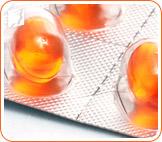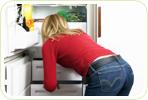Menopause and depression are often inextricably linked due to fluctuating hormone levels. This means midlife is considered a period of increased risk of depression for women, often affecting twice the number of women when compared with men. Studies actually indicate that depression is more likely to occur in the years during the transition leading up to menopause - the perimenopausal years - as a consequence of declining estrogen levels.
What Are the Symptoms of Depression during Menopause?

The symptoms of depression during menopause typically include some of the following: two or more weeks of depressed mood, decreased interest or pleasure in activities, changes in appetite, in sleep patterns, fatigue or loss of energy, difficulty concentrating, excessive feelings of guilt or worthlessness, thoughts of suicide, extreme restlessness, and irritability. Furthermore, many of the other symptoms of menopause, such as hot flashes and fatigue, can overlap with the symptoms of depression, one often exacerbating the other.
Unfortunately, many suffer needlessly because they think these symptoms are a natural part of aging. While this is true to a certain extent, it ignores the many treatment options available for easing the symptoms of both menopause and depression.
Untreated depression can lead to more severe episodes of depression and even physical complications. For this reason, it is important to be informed about the treatments available for menopause and depression.
What Are the Treatment Options for Depression?
The following outlines the most common treatments recommended for managing menopause and depression.
Medications

There are many effective, well-tolerated antidepressant medications. Antidepressant medications are an essential part of treatment for women who are either moderately or severely depressed.
Hormone Replacement Therapy (HRT)
Some studies suggest that estrogen helps with depression in the early stages of menopause. Although the usefulness of estrogen as an antidepressant has not been well established, it may be an important adjunct to other treatments for depression. Keep in mind the risks or side effects related to HRT.
Physical examination
A thorough physical examination is important to rule out any physical illnesses that may cause depressive symptoms. As you age, you may develop some health problems. Certain medications can also cause symptoms that mimic depression.
Therapy
Therapy involves talking with a trained professional on a short-term or a long-term basis and can take many forms. Two types of therapy are particularly effective for depression; Cognitive behavioral therapy (CBT) targets negative thoughts and behaviors that can worsen depressed mood and teaches better ways of thinking and behaving. Interpersonal therapy (IPT) helps a person communicate more effectively with others; therefore, decreasing stressors.
Furthermore, if depression during menopause is the result of physical changes within the body, a hormonal balancing program is often the best solution to resolving the depression. Alternative medicine treatments have been shown to work naturally, and often target the hormonal imbalance causing the depression. Of course, in cases of severe depression, a trained medical professional should always be consulted.
Click the link for more detailed information on menopausal depression treatments.
Sources
- Boyles, Salynn, and Dr. Louise Change. "Nearing Menopause? Depression a Risk". WebMD. www.webmd.com
- University Health Services.(n.d)."Clinical Depression". Retrieved from www.uhs.berkeley.edu
- University of Michigan Depression Center.(n.d)."Women and Depression: Menopause". Retrieved from www.med.umich.edu.



